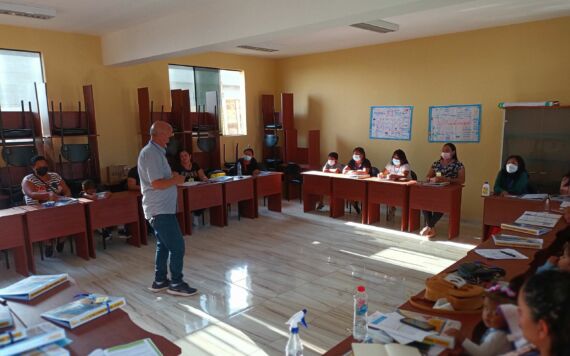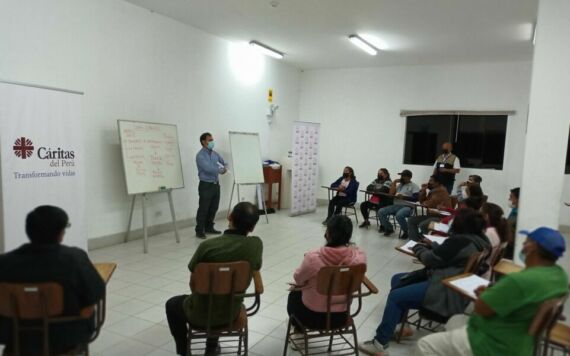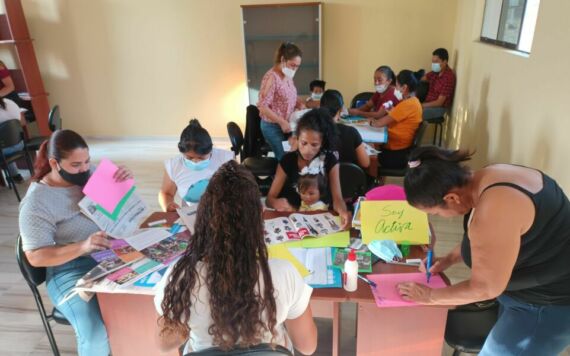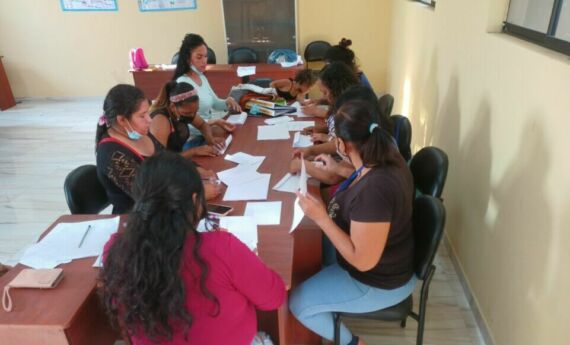| Project Name | Resilience for female micro-entrepreneurs, Venezuelan refugee population and people with disabilities in Lima, Peru |
| Commisioned by | German Federal Ministry for Economic Cooperation and Development (BMZ) |
| Country | Peru |
| Implementing Organisation | Cáritas del Perú – www.caritas.org.pe |
| Duration | October 2022 – February 2024 |
The Challenge
Micro-, Small and Medium-sized Enterprises (MSMEs) Were Severely Affected by the COVID-19 Pandemic: Entrepreneurs in Limas inner-city slums, mostly operating informally, could often not adapt to the radical market changes and new regulations imposed by the pandemic. A lack of further education, as well as access to and knowledge of innovative ways of marketing and delivery resulted in closure of many businesses and substantial income loss.
Discrimination Against Women, Migrants and People with Disabilites: Women are among the most vulnerable in the Peruvian labour market, their socio-culural reality does not consider gender equity strategies in the workplace. Besides women, also migrants and people with disabilities are further groups who already experience marginalization in multiple ways on the labor market. Through the impact of the pandemic, they are even more prone to being left behind.
The Objective
The project aims at the economic recovery of entrepreneurial women through the generation of employment opportunities.
The specific objectives are to develop skills and competences to adapt to changing conditions as well as to take economic decisions on rational basis in order earn a stable family income. The (economic) empowerment of women also leads to
improved self-confidence, and knowledge of their rights.
The Target Group
The programme targets 80 women living in extreme poverty in the district of El Agustino in Lima, Peru. Among these women 30 are Venezuelan migrants and 15 have a physical disability. The lives of especially women in El Augustino are marked by multidimensional poverty which manifests itself in e.g. lack of access to adequate housing, healthcare and education as well as high rates of criminality.

About Cáritas del Perú
Cáritas del Perú is an organization of the Catholic Church that leads and promotes projects and programs of integral human development in the most vulnerable and poorest populations of the country.
It’s mission is to reduce social exclusion and to promote sustainable integral human development.
Website: www.caritas.org.pe
The Approach
Mapping Governmental and Non-Governmental Actors: Creating synergies with other governmental and non-governmental actors (municipality of El Augustino, Parishes of the Diocese, NGOs, Universities and Technological Institutes) to be able to respond to the beneficiaries’ spezific request.
Enabling Active Partizipation in Economic Activities: The provision of rights of residence for venezuelan migrants is supported by the Diocese of Lima and the Francisan Order and an important step towards the formalization of their small businesses.
Providing Psychological Support: The success of the entrepreneuership often depends on the support of the family, especially of the partner. Experienced psychologists support the women and their partners throughout the training and mentoring to ensure the acceptance and to increase a good self-esteem of the entrepreneurs.
CEFE (Competency based Economies through Formation of Entrepreneurs) Methodology: is a comprehensive set of training instruments using an action-oriented approach and experiential learning methods to develop and enhance the business management and personal entrepreneurial competencies. Initiated in the early 1980s, CEFE has become best practice in entrepreneurship development and was introduced in more than 140 countries with over 20,000 trainers trained worldwide. It offers various training modules from business creation to multiple customized courses.
Achieved Results
- 80 participants were trained on business management
- 4 workshops were conducted on gender equity in the workplace and prevention of family and gender-based violence
- 80 participants implemented new businesses and ventures
- 3 workshops were conducted on developing digital marketing strategies





